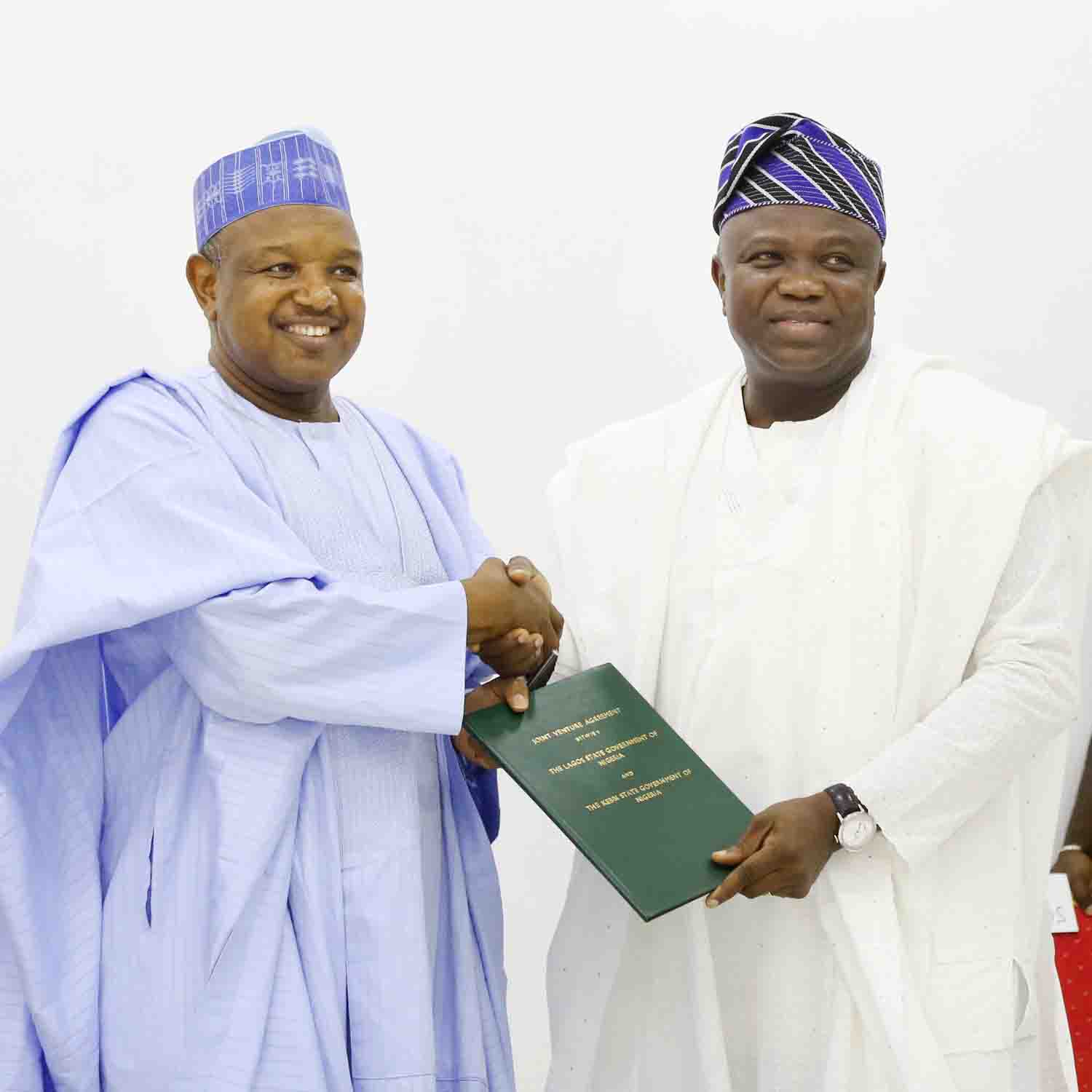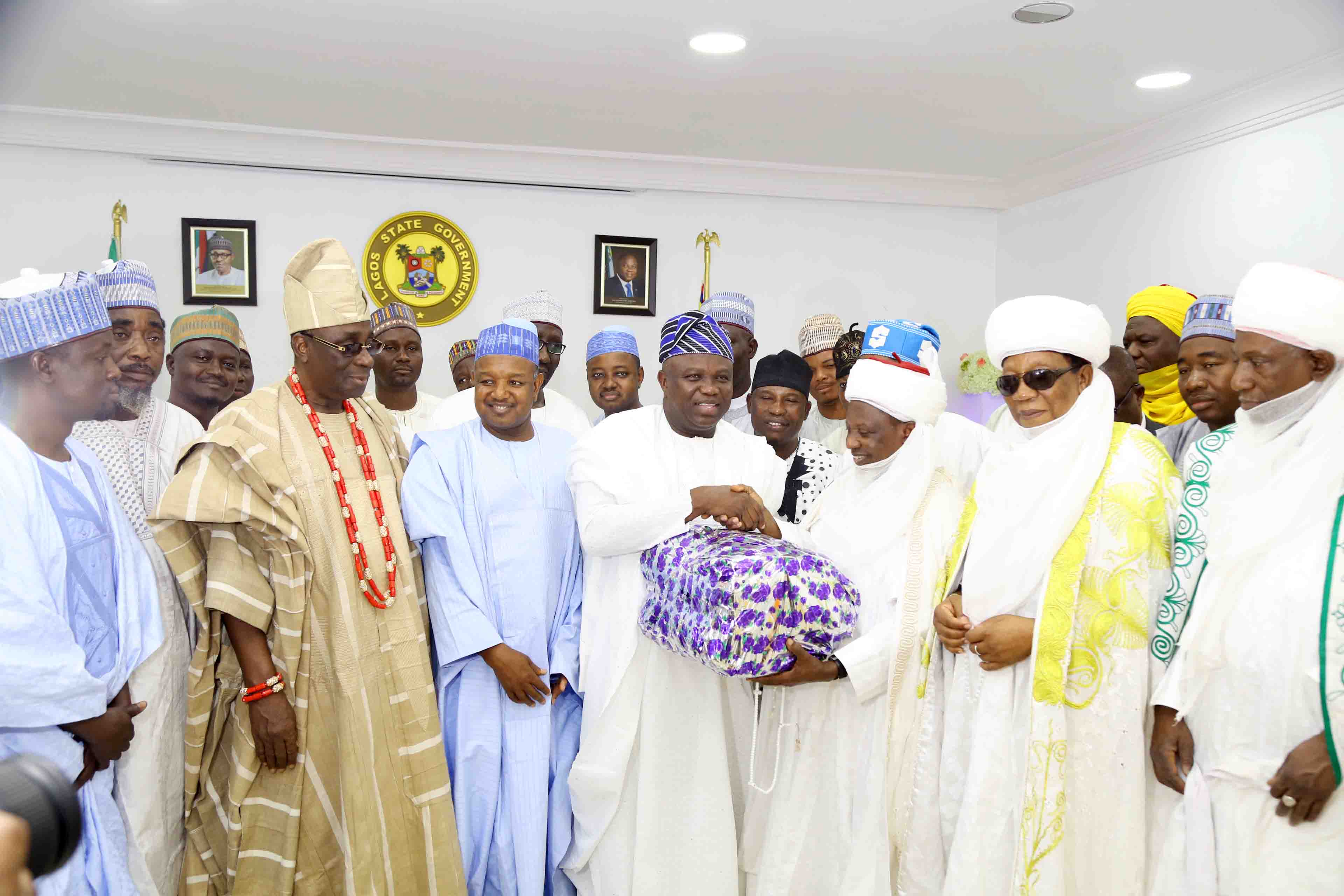On Wednesday 23rd of March 2016, the Lagos State government signed a Memorandum of Understanding with Kebbi State on the development of commodity value chains. The commodities include Rice, Wheat, Groundnut, Onions, Maize, Sorghum and beef.
At the signing of the MoU, which was well attended by top government officials from both states, including royal fathers and chiefs, His Excellency, Governor Akinwunmi Ambode stated that the partnership is in line with President Muhammadu Buhari’s clarion call and policy direction on the need for the nation to feed itself.
The partnership between Lagos State and Kebbi State will enhance food processing, production and distribution. According to the Governor of Lagos State, Mr. Akinwunmi Ambode, the future of Lagos State is partly tied to the deliberate resolution on food security. Mr. Akinwunmi Ambode, emphasized that food production and self-sufficiency requires immediate attention at policy and strategic levels.
The Lagos state Honourable Commissioner for Agriculture, Hon. Oluwatoyin Suarau said the collaboration between the two states is geared towards meeting the supply gap in food demand in Lagos, and also the development of commodities that Kebbi State has comparative advantage in.
Hon. Oluwatoyin Suarau, elaborated further on the essence of the partnership, stating that the Lagos–Kebbi collaboration which is based on Value Chains development, stems from the strategic role of the Lagos State government to enhance suitable food security and also the creation of employment for citizens.
It was revealed at the signing of the MoU that Lagos consumes over 1,500 tonnes of staples such as maize and rice and 600 tonnes of beef daily, out of which only about 12% is produced locally.
The Governor of Kebbi State, His Excellency, Alhaji Atiku Bagudu expressed his gratitude to the Governor of Lagos, Governor Akinwunmi Ambode on the partnership. He explained that the entire people of Kebbi, including community leaders and the Kebbi State House of Assembly, are pleased with the partnership. Governor Bagudu expressed that Lagos and Kebbi State has recorded a long history of trade and that this partnership will help to cement many of the previous partnerships.
Lagos State Commissioner for Agriculture, Mr. Oluwatoyin Suarau (right), with Permanent Secretary, Kebbi State Ministry of Agriculture, Dr. Nababa Adamu (left), signing a Memorandum of Understanding on the Development of Commodity Value Chains between the two States while Lagos State Governor, Mr. Akinwunmi Ambode (right behind) and Kebbi State Governor, Alhaji Atiku Bagudu (left behind) watch, at the Lagos House, Ikeja, on Wednesday, March 23, 2016.
The governor of Kebbi State said Lagos and Kebbi will be leading the entire nation in the economy diversification policy of President Buhari. “We believe that our people from the two states can benefit a lot from this cooperation, we can add value jointly by creating employment and also increase income” says Governor Atiku Bagudu.
In addition, he added that Lagos and Kebbi can provide for about 70% of the rice consumed by Nigerians and that Kebbi State is looking into providing wheat for the entire nation in partnership with Lagos.
The Governor of kebbi State revealed that Kebbi is the second largest producer of animal protein, after Yobe and that with this collaboration, Lagos and kebbi can reduce the trafficking of castles into Lagos by producing better processed and greater quality meat in Lagos.
Governor Akinwunmi Ambode during his address said Lagos is the largest consumer of food commodities in the country by virtue of population. “We have the market, with the required purchasing power also. Lagos State has an estimated consumption of over 798,000 metric tonnes of milled Rice per year which is equivalent to 15.96 million of 50kg bags, with a value of N135 billion per annum. We have the economic prowess to produce rice locally. The era of imported rice is gone. The reality is for all of us to embrace the consumption of local foodstuff and commodities.” says His Excellency, Governor Akinwunmi Ambode.
In addition, Governor Ambode emphasized on the market strength of Lagos as a market hub for farm produce, saying “The bulk of the vegetables produced in the country end up in the Lagos markets. Lagos State is one of the largest producers of poultry and thus has a large demand for maize for livestock feed production. The State also houses most of the industrial users of wheat and sorghum; mostly flour mills, bakeries, breweries and food manufacturers. Kebbi State, on the other hand, is blessed with a vast arable land suitable for the cultivation of Rice, Wheat, Ground nut, Maize, Sorghum and Sugar cane. “
Governor Ambode showed how the partnership between the states will be beneficial by further explaining that “Kebbi is an agrarian State with over 1.2 million hectares of arable land characterised by very large floodplains, lowland swamps and gentle slopes.”
Lagos State Governor, Mr. Akinwunmi Ambode (middle), being presented with a gift by Emir of Gwandu & Chairman, Kebbi State Council of Chiefs, Alhaji Muhammad Bashar(2nd right) during the signing of Memorandum of Understanding on the Development of Commodity Value Chains between Lagos and Kebbi States at the Lagos House, Ikeja, on Wednesday, March 23, 2016. (L-R) With them are Oba of Lagos, Oba Rilwan Akiolu I; Kebbi State Governor, Alhaji Atiku Bagudu and Emir of Zuru, Major General Muhammad Sani Sami (rtd).
The alliance between Kebbi and Lagos will ensure Food Security, job creation, increase in farmers’ income and the overall improvement in the living conditions of Lagosians and the people of Kebbi State in terms of wealth creation and poverty reduction.
Governor Akinwunmi towards the end of his address said “This is the first time in the history of Nigeria that two States are collaborating to develop their agricultural potentials. Our MOU with Kebbi State government today, signals the commencement of a new beginning of cooperation, partnership and common-sense revolution – the ‘CHANGE’ in the APC mantra – that calls for patriotism in all facets of life.”
The joint venture partnership between the states will be implemented using a Special Purpose Vehicle (SPV), LASKEB Agricultural Production and Marketing Company (LAPMCO), the major areas of focus will be the development of Commodity Value Chains with emphasis on Rice, Wheat, Ground Nut, Onions, Maize/Sorghum and Beef.


